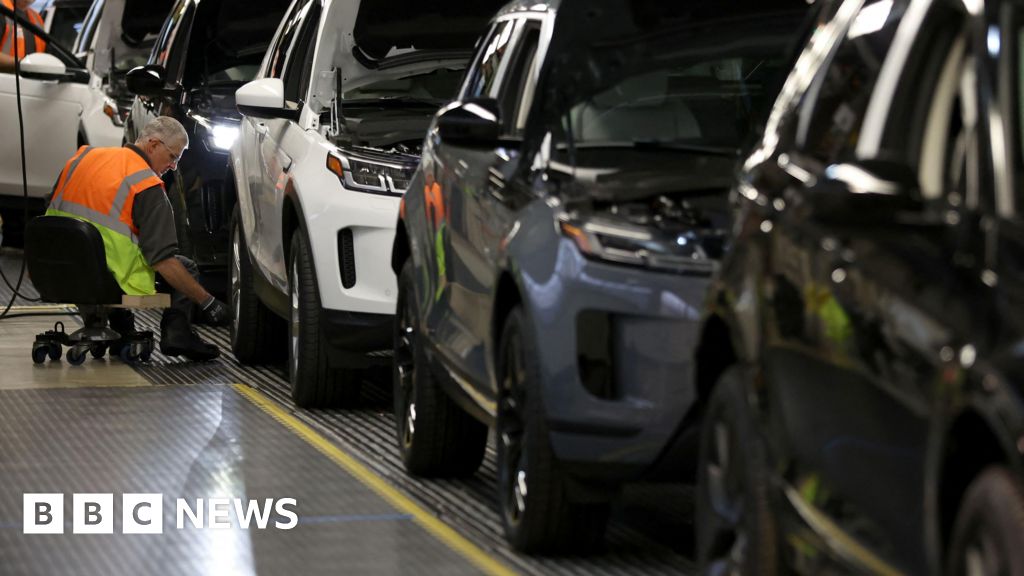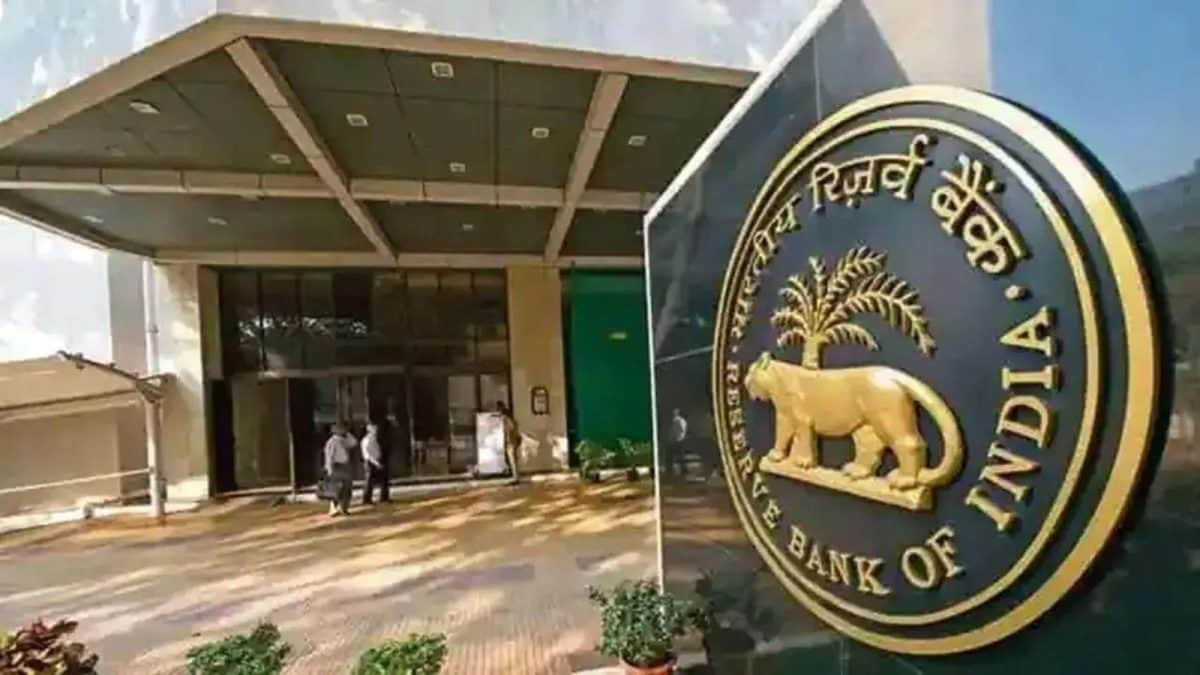Business
Government to guarantee £1.5bn Jaguar Land Rover loan after cyber shutdown

The government will underwrite a £1.5bn loan guarantee to Jaguar Land Rover (JLR) in a bid to support its suppliers as a cyber attack continues to halt production at the car maker.
Business Secretary Peter Kyle said the loan, from a commercial bank, would protect jobs in the West Midlands, Merseyside and across the UK.
The manufacturer has been forced to suspend production for weeks after being targeted by hackers at the end of August.
There have been growing concerns some suppliers, mostly small businesses, could go bust due to the prolonged shutdown. The company operates the largest supply chain in the UK automotive sector, employing around 150,000 people.
It is hoped the loan will give suppliers some certainty as the shutdown continues.
The government will underwrite the loan through the Export Development Guarantee (EDG), a financial support mechanism aimed at helping UK companies who sell overseas.
The loan will be paid back by JLR over five years, in an effort to boost the firm’s cash reserves as it makes a “backlog of payments” to its suppliers.
No cars have been built this month, and the company has stopped placing orders with its 700 suppliers.
A parliamentary committee said some small suppliers had told them they had, at most, one week left before they ran out of cash.
The halt in operations is thought to be costing JLR itself at least £50m per week.
The manufacturer, owned by India’s Tata Motors, typically builds about 1,000 cars a day at its three factories in Solihull and Wolverhampton in the West Midlands, and Halewood in Merseyside.
Kyle said: “Following our decisive action, this loan guarantee will help support the supply chain and protect skilled jobs in the West Midlands, Merseyside and throughout the UK.”
Chancellor Rachel Reeves said: “Today we are protecting thousands of those jobs with up to £1.5bn in additional private finance, helping them support their supply chain and protect a vital part of the British car industry.”
Shadow business secretary Andrew Griffith welcomed the government’s support but said it “took too long to get there” and called on Labour to form a cyber reinsurance scheme to protect British businesses from state-backed actors.
Liberal Democrat business spokesperson Sarah Olney also praised the move but said the government had been “too slow to act”, adding it should also be prepared to provide a furlough scheme for affected workers if required.
Union Unite, representing thousands at JLR and in the supply chain, described the government support as an “important first step”.
“The money provided must now be used to ensure job guarantees and to also protect skills and pay in JLR and its supply chain,” said general secretary Sharon Graham.
JLR was hit by a cyber-attack on 31 August. A group calling itself Scattered Lapsus$ Hunters has claimed responsibility for the hack.
It was also behind a number of high-profile attacks on retailers earlier this year, including Marks & Spencer and Co-op.
JLR workers have been told to stay home since 1 September, with no firm return date provided.
About 30,000 people are directly employed at the company’s plants.
A JLR spokesperson said: “Our teams continue to work around the clock alongside cybersecurity specialists, the NCSC and law enforcement to ensure we restart in a safe and secure manner.
“The foundational work of our recovery programme is firmly underway, and we will continue to provide regular updates to our colleagues, retailers and suppliers.”
Business
Yes Bank Under Scanner As RBI Summons Executives Over Forex Card Breach

Last Updated:
RBI has summoned senior officials of Yes Bank following a major data breach involving the Yes Bank–BookMyForex multi-currency forex card


Reserve Bank of India headquarters in Mumbai.
The Reserve Bank of India (RBI) has summoned senior officials of Yes Bank following a major data breach involving the Yes Bank–BookMyForex multi-currency forex card, two people aware of the development told The Economic Times (ET).
According to the report, card details and CVV numbers of several users were allegedly compromised. The central bank has sought a detailed explanation from the bank on how its systems may have been breached and the sequence of events that led to the exposure of sensitive customer data.
“The RBI has sought a comprehensive briefing from Yes Bank’s senior management on the root cause of the breach, the timeline of events, and the adequacy of the bank’s cybersecurity framework,” one of the persons cited by ET said. “The regulator wants clarity on how sensitive card data, including CVV numbers, may have been exposed and what immediate containment measures have been implemented.”
Yes Bank declined to comment on the RBI’s queries but said an internal investigation had identified fraudulent transactions involving 15 merchants in a Latin American country on February 24. Transactions worth Rs 2.54 crore were approved across 5,000 customers, while 688 unauthorised attempts amounting to around Rs 90 lakh were blocked. The bank said it is working with the card network to initiate chargebacks and ensure that affected customers do not face financial losses.
Separately, BookMyForex said it does not store customers’ sensitive card information and that its systems were neither breached nor compromised during the period in question.
The RBI has also sought details on how sensitive card data—particularly CVVs—was stored and protected, whether encryption and prescribed security protocols were followed, and why existing cyber controls failed to prevent the breach. In addition, the regulator is reviewing the timeline of detection and reporting, the robustness of third-party risk management and oversight, the number of customers impacted, and the steps taken to block cards, prevent misuse and mitigate losses. It has also asked for clarity on internal accountability, supervisory lapses and remedial measures to prevent a recurrence, ET reported.
Follow News18 on Google. Join the fun, play games on News18. Stay updated with all the latest business news, including market trends, stock updates, tax, IPO, banking finance, real estate, savings and investments. To Get in-depth analysis, expert opinions, and real-time updates. Also Download the News18 App to stay updated.
February 26, 2026, 07:53 IST
Read More
Business
The family-owned soda firm that stuck to returnable glass bottles

Soft drinks company Twig’s Beverage has a loyal following for its old-fashioned approach.
Source link
Business
Cost of living: Students praise ‘essential’ food bank service

Queen’s University Belfast says there were more than 10,500 visits by students to its food bank in the students’ union.
Source link
-

 Entertainment1 week ago
Entertainment1 week agoQueen Camilla reveals her sister’s connection to Princess Diana
-

 Tech1 week ago
Tech1 week agoRakuten Mobile proposal selected for Jaxa space strategy | Computer Weekly
-

 Politics1 week ago
Politics1 week agoRamadan moon sighted in Saudi Arabia, other Gulf countries
-

 Entertainment1 week ago
Entertainment1 week agoRobert Duvall, known for his roles in "The Godfather" and "Apocalypse Now," dies at 95
-

 Business1 week ago
Business1 week agoTax Saving FD: This Simple Investment Can Help You Earn And Save More
-

 Politics1 week ago
Politics1 week agoTarique Rahman Takes Oath as Bangladesh’s Prime Minister Following Decisive BNP Triumph
-

 Tech1 week ago
Tech1 week agoBusinesses may be caught by government proposals to restrict VPN use | Computer Weekly
-

 Sports1 week ago
Sports1 week agoUsman Tariq backs Babar and Shaheen ahead of do-or-die Namibia clash




